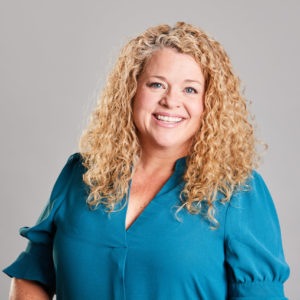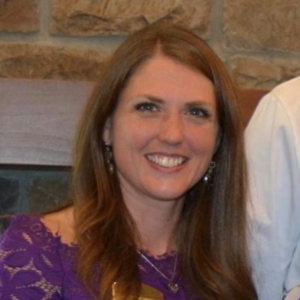They call it a nursing home for a reason
I remember a television advertisement not too long ago for an Alzheimer’s drug that has a middle-aged woman narrating about her fear that she would have had to put her father into a nursing home if it weren’t for this medication that has allowed him to continue living with her and her family. It was a warm-hearted ad that ended with the family having dinner together and laughing.
The main message of the ad was that this medication works, but the not-so-subtle underlying message is that we need to do all we can to make sure that our aged parents do not have to live in the dreaded world known as “the nursing home.” If we are truly loving children, the message goes, we will do all we can to make sure our parents avoid such a hellish existence.
Though the ad is effective, I became bothered by the message that nursing homes are, without question, negative places in which to live. I am bothered by this because I know it isn’t true: My 88-year-old mother has been living in a nursing home for two-and-a-half years, and her time there has not only been “not negative,” it has been extremely positive. In fact, it has served to bring her back to us, her three children and two grandchildren.
My mother was widowed at 74 and continued to live an incredibly active life for the next nine years or so. But then she lost her ability to drive. And her friends lost their ability to drive, or, in some cases, they passed away. She then lost her ability to walk unaided and began to experience urinary incontinence. Finally, she was diagnosed with early stage Alzheimer’s.
Her world, always so rich with outings, friendship, travel, and interest in a wide variety of activities, became smaller and smaller. It happened quickly and seemingly all at once. She was left with just two regular activities: a weekly trip to the “beauty shop” where she would get her hair done and a weekly trip to mass.
One of my two brothers lived with her in the house where we grew up, but it became clear about three years ago that she needed more assistance than he was able to give. My husband and I teach English at a small college in Vermont and we, along with our two teenaged children, sincerely offered to have my mom move in with us. She’d always loved visiting us several times a year since we moved here in 1989, first with my dad and then, after he passed away in 1994, on her own. But to our offer she replied, “Well, I love all of you with all my heart, but honey, what would I do there?” And although she wasn’t “doing” much in Michigan anymore, she did have a point. Although her world had grown small, it was still a world with which she was familiar, in a town where she’d lived her entire life. She wanted that familiarity and the comfort it provided her.
So there we were. She couldn’t live alone, and she needed more help than my brothers and I could give her. So, after many lengthy conversations with each other and with my mom, we all made the decision that a nursing home was the appropriate choice. But even knowing this, we made the decision with some reluctance because we, like so many others, had the impression that a nursing home was less than one step away from the funeral parlor. And my mom had lived in our family home for 45 years, so leaving was emotional. But nonetheless, we knew it was the place my mom needed to be. And thankfully, she knew it as well.
She moved into the nursing home in the summer of 2005, and almost immediately we knew it was the right choice. Three years later, I can honestly say that this home has not only provided a place for my mother to live, it has also provided a place for her to thrive. For the year or so before moving out of our family home, I would talk to my mom (we talk on the phone daily) and she would have very little to say. “What did you do today Mom?” “Oh, not much. Watched some TV. Took a nap. Ate a bit.” I would often cry after hanging up—feeling helpless and wanting to help. My mother, always a great conversationalist and easy laugher, now had little to say, was easily distracted, and seldom laughed.
Now, I look so forward to talking with her every day because I know she’ll have a lot to say. And once again, every conversation is punctuated with laughter. She not only has three social meals a day with friends she’s made since moving in, she also has daily mass, she continues to get her hair done weekly at a shop right at the home, she participates in the daily reading/discussion of the local newspaper, she has physical therapy, and she plays various games provided on an almost daily basis. Add to this the monthly birthday parties—replete with cake and ice cream and various party favors—in honor of all of the residents celebrating birthdays that month, the monthly “wine and dine” dinners that are always a treat, the regular concerts given by people from throughout the community and, of course, the regular visits from family and friends, and Mom has a richer life than we would have imagined possible before she moved there.
And some of the best news is that Mom’s Alzheimer’s remains incipient—most likely at least in part due to her re-engagement in so many activities lost to her in the last couple of years she lived at home.
In addition to talking with Mom every day, I am able to visit every couple of months, and though she is confined to a wheelchair, she is, in so many ways, the active mom she’s always been. She’s even able to leave the home for dinner out and overnights at my brother’s home where my family and I stay when we come to town. But, as much as she loves getting out and about—just as she always has—she is never reluctant to return, and that is both a huge relief and a real comfort to my brothers, my husband, my children, and myself.
Because of the kindness of the nurses, aides, administrators, and volunteers, and because of relationships with other residents, the nursing home has really become her home. And, because she is in great spirits and better health than we ever could have dreamed of three years ago, I am so thankful that we didn’t let the stereotype of a “nursing home” keep our family from providing Mom with the best care possible. Making this choice has resulted in these years of her life being not just tolerable, but truly happy.
How’s that for an advertisement?
Janice Gohm Webster, PhD, is an English professor at Champlain College, Burlington, Vermont. For further information, phone (802) 893-7622 or email websterj@champlain.edu.
Related Articles
Topics: Alzheimer's/Dementia , Articles











